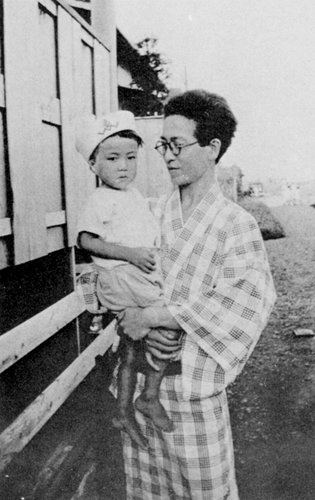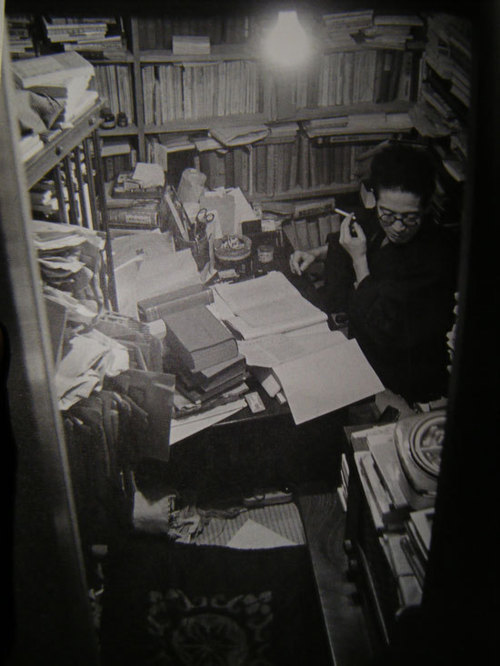<Back to Index>
- Writer Sei Ito, 1905
PAGE SPONSOR


Sei Ito (伊藤 整 Itō Sei) a.k.a. Hitoshi Ito (伊藤 整 Itō Hitoshi) (Hokkaidō, January 16, 1905 - November 15, 1969) was a Japanese poet, novelist and translator.
Sei Itō was born in Matsumae, Hokkaidō, under the name of Hitoshi Itō. After graduating from Otaru Higher Commercial School (now Otaru University of Commerce), he moved to Tokyo and entered the Tokyo College of Commerce (now Hitotsubashi University), which he left without graduating. In 1926, he debuted with the poetry collection Yukiakari no michi (lit. "Snow-lit road"). Together with writers like Junzaburō Nishiwaki, Riichi Yokomitsu and Tomoji Abe, Itō became an exponent of writers who introduced European Modernist literature into Japan in the literary journal Shi to shiron ("Poetry and poetic theory"), and kept aiming at what he termed "modernism" in his own writing throughout his life.
Starting in 1931, he provided (together with Sadamu Masamatsu and
Hisanori Tsuji) the first complete translation of James Joyce's Ulysses into Japanese in the 1930s. Itō's 1937 novel Streets of Fiendish Ghosts (Yūki no machi)
showed the influence of Joyce's stream of consciousness technique, and
his style became known as "Shin shinri shugi" ("School of new
psychology"). In 1950, he caused controversy for his complete
translation of D. H. Lawrence's Lady Chatterley's Lover, which became the case of an obscenity trial. He was awarded the Kikuchi Kan Prize in 1963 for his Nihon kindai bungaku taikei ("History of Japanese literary circles") and the Japan Art Academy Prize in 1969.